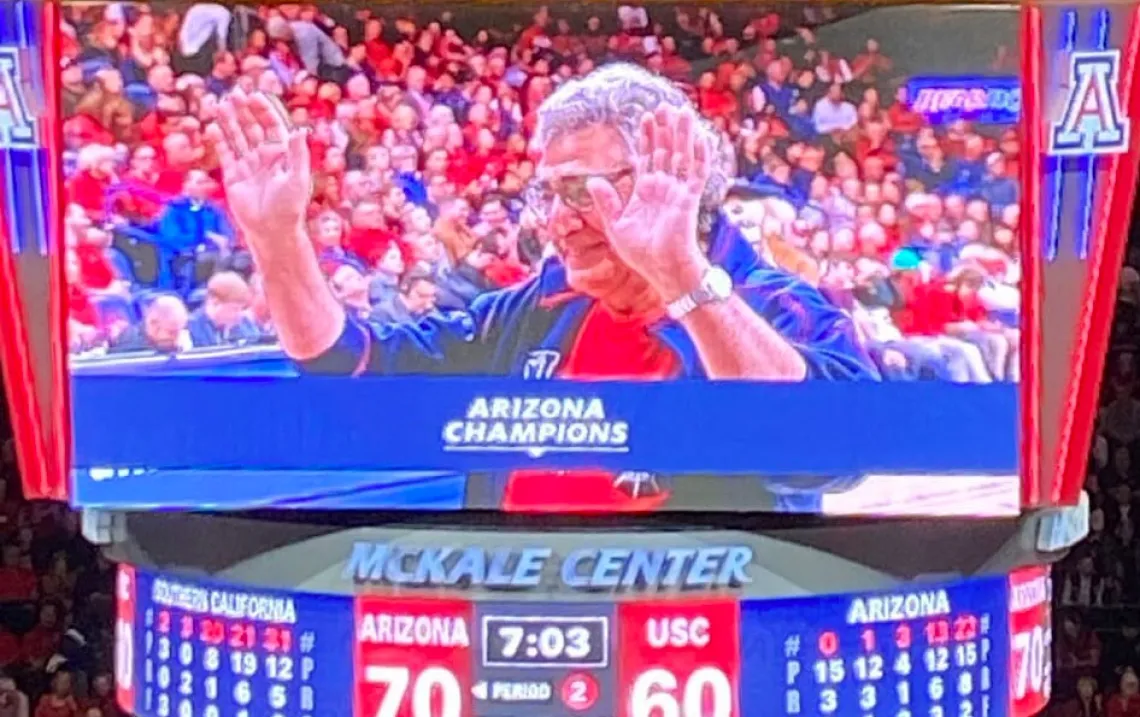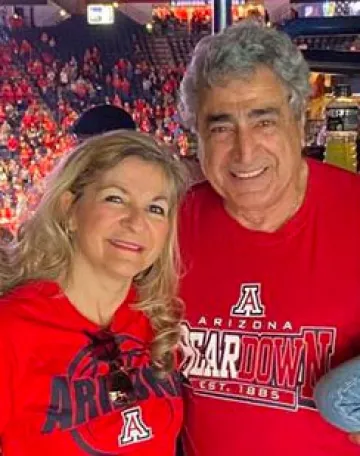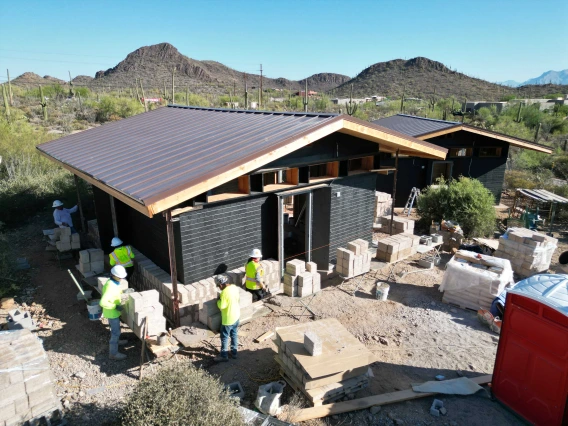Architecture and Environmental Sciences Professor Nader Chalfoun Honored as Arizona Champion


Professor Nader Chalfoun with Marie Toutounji at the Arizona men's basketball game against USC.
With seven minutes left in the February 6, 2020 University of Arizona men’s basketball game against the USC Trojans, the score was close and the crowd was raucous. But the game wasn’t the only reason to cheer. During a timeout, Nader Chalfoun, beloved professor of architecture and environmental sciences who will retire this spring, was honored as an “Arizona Champion.”
Arizona Champions are outstanding faculty members who are recognized by University of Arizona administration and deans—in this case, CAPLA Dean Nancy Pollock-Ellwand—as leaders in their field. It is an honor bestowed upon select university faculty during home men’s basketball games.
“I am honored to be nominated and selected by the University of Arizona president, provost and dean to be recognized,” says Chalfoun.
Chalfoun received his PhD in Arid Lands Resource Sciences in 1989 and a Master of Architecture in 1985, both from the University of Arizona. An award-winning creator and director of the House Energy Doctor program, he teaches environmental control systems, design studios with a focus on sustainable and green architecture, energy conservation, passive solar systems and computer simulation for thermal performance optimization of buildings.



